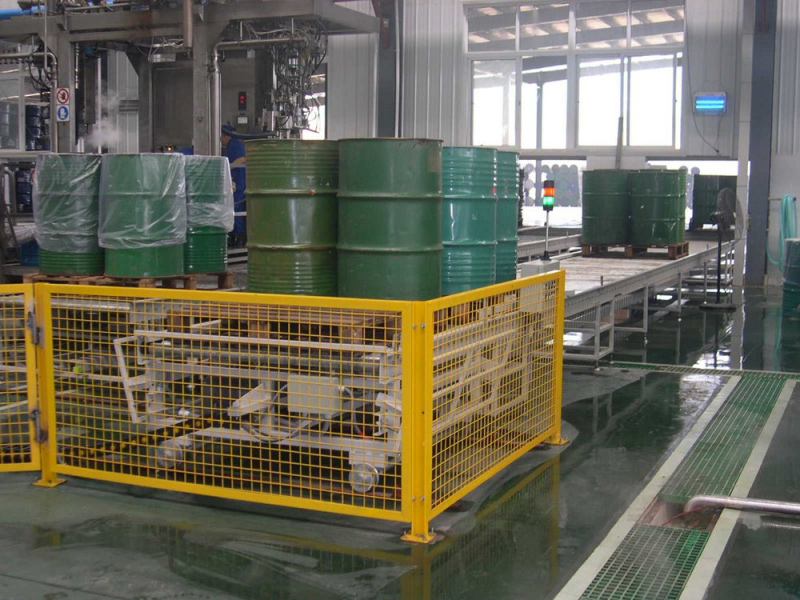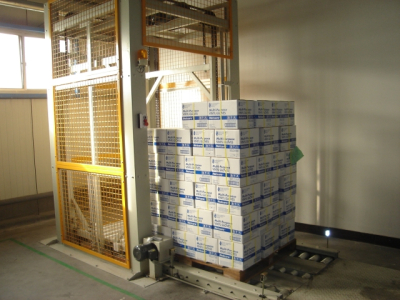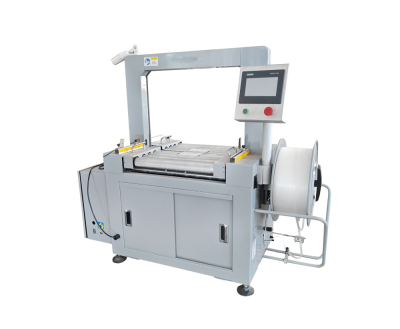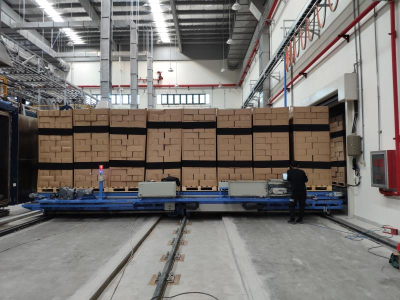China automation market analysis: already the world's large industrial automation market
Because the core of the Internet of Things is the industrial Internet; because, comparatively speaking, the industrial Internet affects our production, life and survival values more profoundly than the consumer Internet.
In terms of national strategic height. Relevant information will be mentioned in Germany Industry 4.0, the United States Industrial Internet, Made in China 2025, with these to prove that the national level has long been “cross swords”. So-called: ordinary consumer level “travel, sharing, consumer upgrading” related aspects of business information flying, huge industrial, manufacturing level, “industrial Internet revolution quietly”.
In terms of the lively venture capital direction. The so-called “capital winter”, just mobile Internet projects, O2O project winter. The total amount of investment has not been reduced, but also continue to climb, the proportion of high-end manufacturing investment in a substantial increase. The truth of “capital winter” is just that the public is more likely to notice that the consumer Internet industry has entered the winter, for good technology companies, get money instead of easier.
Industry is heavy, “wind mouth” is also heavy, it is difficult to be the general public lightly talk about!
Kan Lei, CEO of Transformation Workshop, openly declared: the myth of the mobile Internet has been broken, industrial digitization will become a big wind mouth in five years. Kan Lei said that the industrial robot market has been growing 20% year after year, and in 2020 it will reach 40 billion dollars. “The industrial Internet is even set to reach a $1.7 trillion market, 2.6 times that of 2014.”
The U.S. Manufacturing Productivity Innovation Alliance reported in 2015 that U.S. information equipment and industrial equipment growth will reach more than four times GDP in the next three years, bringing high growth of 8% to the U.S., the world's economy. China's Ministry of Industry and Information Technology (MIIT) issued a document requiring that in 2017, domestic investment in industrial technology transformation should account for more than 40% of total industrial investment, which will bring a $1.6 trillion market opportunity for industrial digitization this year.
However, just as the birth and development of the world's power generation companies attracted the world's attention, while the widespread application of electricity a greater number of more far-reaching, longer-lasting companies and industrial changes, but less attention; just as the world's computer companies were born and the formation of giants caused noise, while the widespread application of computers to all walks of life does not cause a burst of gasps of surprise; the Internet plunged headlong into the industrial, set off the The fourth industrial revolution, only when looking back, in order to summarize its magnificent.
Industrial Internet is the convergence of two major revolutions, 1% can see the magic!
Ma Huateng said: “Internet +” has not only been limited to government affairs, people's livelihood, health care and other fields, but also began to retail, aviation, manufacturing and other real economic empowerment.
Wang Xing, CEO of Xinmeida, said: China's Internet has entered the “second half”, “we only do a very thin layer, mainly online traffic, to help merchants do marketing, do the whole industry chain after the small section. Looking back, “Internet +” to do is the various industries from upstream to downstream of the industrial Internet.
These are just the voices of Internet companies.
As far as the industrial Internet is concerned, there are five forces involved. The future competition is the battle of cross-border, the battle of integration, the battle of platforms, and the battle of ecology, so fierce.
The first enterprises are industrial companies; the
The second category of enterprises are IT enterprises, like IBM, Microsoft; the third category is telecommunication operators, China Mobile, China Unicom, AT&T.
The third category is telecommunication operators, China Mobile, China Unicom, AT&T in the United States.
The fourth category is Internet companies, like BAT in China, Google, Amazon in the United States, and so on.
The fifth category is the emerging startups.
Well, once called “Internet +”, once called the second half of the Internet, and said “industrial Internet”, or back to the concept of industrial Internet.
“Industrial Internet” is a strategic concept put forward by General Electric Company in 2012, after the U.S. manufacturing industry and IT giants grouped together to set up an industrial Internet alliance, during which this concept for the U.S. government to accept, and develop corresponding support to promote policy.
China generally referred to the concept of “industrial Internet”, most of the time used to call on the government and group enterprises to create an “industrial Internet platform”.
In the words of General Electric CEO Ismail, the so-called Industrial Internet is “an open, globalized network that connects people, data and machines. The goal of the Industrial Internet is to upgrade those key industrial sectors.”
Industrial Internet is the fusion of two major revolutions, the final realization of the super battleship.
One is the industrial revolution industrial revolution brought the development of hundreds of years of machines, equipment, facilities and systems network; the second is the Internet revolution decades of development emerged big data, cloud computing, super algorithms, information and communication systems and other aspects of advanced technology.
General Electric released the “industrial Internet” report, “1% of the power” is impressive.
“The technological innovations of the Industrial Internet will have direct application in most areas of economic activity that exceed $32.3 trillion in size. By 2025, the application areas of the Industrial Internet will amount to output on the scale of $82 trillion, or half of the global economy.”
In commercial aviation alone, a 1% fuel savings would mean $30 billion in cost savings over the next 15 years. Similarly, a 1% improvement in the efficiency of all natural gas-fired power plants globally would mean $66 billion worth of fuel savings. By making processes more efficient, the global healthcare industry will also benefit from the Industrial Internet, with a 1% improvement in global healthcare efficiency meaning over $63 billion in healthcare cost savings.
In the global rail freight industry, a 1 per cent increase in efficiency would mean fuel savings of $27 billion.
Made in China 2025 proposes to promote the deep integration of industrialization and informatization, which is a similar goal to that of the Industrial Internet.
In fact, the Industrial Internet has also created considerable value in various industries in China, and this value will continue to grow.
For example, in the field of aviation, a local airline has achieved precise maintenance scheduling by virtue of the analysis and prediction services of industrial Internet, shortening the maintenance cycle by 90%; in the field of healthcare, there are already tertiary hospitals that have increased the start-up rate of medical equipment to 98.5% through the implementation of industrial Internet asset optimization solutions, and at the same time serve the grassroots by means of telemedicine.
Industrial Internet of Things technology has been applied to some wind farms in China, through the real-time detection and active adjustment of equipment, the effectiveness of wind turbines has been increased by 4%, while ensuring the stability of the output of wind farms.
China's advantages, more people, big data, and more hegemonic enterprises are China's realistic weapons
Kan Lei, CEO of Transformation Workshop, believes that this round of industrial digital revolution is of great significance for China to realize the rise of a great power, because it must be driven by China.
Prof. Li Jie, an expert in industrial big data, said: We believe that the center of Industry 4.0 will be in China, because the core of Industry 4.0 is the value creation of big data, and China is both a big country of manufacturing and a big country of using at the same time.
“Industry 4.0 for the transformation and upgrading of China's manufacturing industry, the core of which is not to achieve automation and informationization, but focus on the value of manufacturing to the user, society and the environment to see”.
The power of large state-owned enterprises, the development of Chinese characteristics of the Internet business model, the effect of government policies, the new startups booming, huge market, etc., are not to be ignored China's advantages.
The performance of industrial robots, for example, shows China's advantages.
In recent years, in order to reduce costs and increase efficiency, by the government to promote, enterprise force to implement the “machine for man” wave is accelerating the deployment. Guangdong, Zhejiang, Fujian and other major manufacturing provinces continue to promote the “machine for man” from the provincial level, completely by the robot to replace manual production “black light factory” continues to emerge.
China continues to import industrial robots on a large scale, from 2011 to 2015, China's imports of industrial robots for five consecutive years in the world, industrial robot imports for five consecutive years in the world.
At the enterprise level, in January 2017, Midea Group officially announced the completion of the acquisition of Germany's Kuka. Midea Group, through its wholly owned foreign subsidiary MECCA, holds a total of 37,605,700 shares of Kuka Group, accounting for about 94.55% of the issued share capital of Kuka Group.
KUKA is one of the four global robotics families, and is a pure robotics company among the four. Because Kuka is a German company, the acquisition of Kuka will enable the Chinese company Midea Group to directly grasp the essence of German Industry 4.0.
China is already the industrial automation market, and there is a very large potential for future development. It can be believed that the power of the industrial Internet is China's full rise to become possible.





